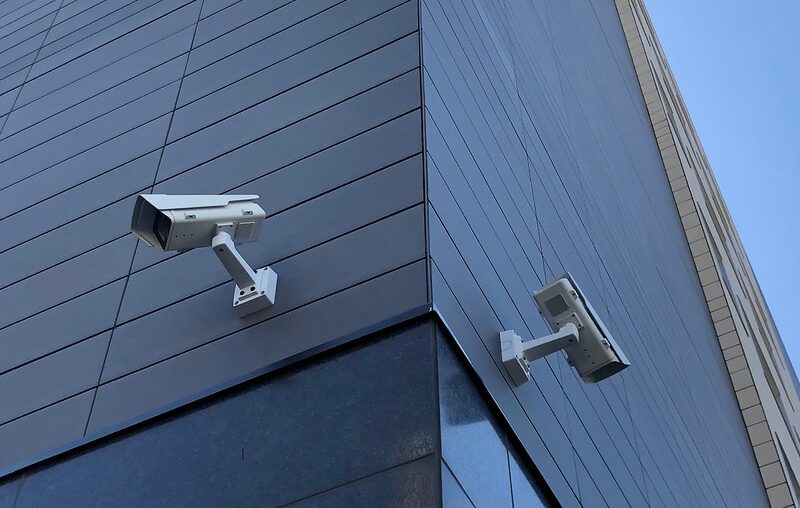Privacy in the Digital Age: Historical Perspectives and Future Implications

Privacy is a fundamental human right that has been at the heart of many debates and discussions in today’s digital age. With the rapid advancement of technology, we have become increasingly connected to the internet, devices and platforms, making it easier for businesses and governments to gather and use our data. As a result, it is essential for us to understand the relationship between privacy and surveillance and their impact on our daily lives. This week’s post will explore the historical perspective of privacy concerns, analyze the current state of privacy in the digital age, discuss the balance between privacy and security, and offer solutions for ensuring privacy and security in the modern world. We will also look at the impact of COVID-19 on surveillance, examine a recent work on how “Only Surveillance can Save us from Coronavirus,” and refute the main points presented in that work. This is a journey to understand and protect our fundamental right to privacy, and it’s one we need to revisit from time to time.
Historical Perspective
Throughout history, privacy has been a concern for individuals and societies alike. Even as far back as the nineteenth century, Samuel Warren and Louis Brandeis published an influential article in the Harvard Law Review titled “The Right to Privacy” in which they argued that individuals have a right to solitude and the right to protect themselves from unwanted intrusion by others. They referred to privacy as “the right to be left alone.”
In 1967, Alan Westin further developed the concept of privacy in his book “Privacy and Freedom,” where he introduced the three categories of people: those who are privacy fundamentalists, who strongly believe in the right to privacy; those who are privacy pragmatists, who are willing to give up some privacy for specific benefits or reasons; and those who are privacy unconcerned, who do not seem to care about privacy at all.
These historical perspectives have helped shape the concept of privacy and propelled it into the forefront of modern-day discussions on surveillance and technology.
Privacy Concerns in the Digital Age
The rapid advancement of technology has revolutionized the way we live, work, and communicate. However, this advancement has also raised significant concerns about privacy in the digital age. With a broad array of devices, platforms, and online services, there is an increasing amount of personal information being generated and shared online. Businesses and governments have unprecedented access to this data, and it is essential to understand the potential implications that access can have on our lives.
One of the most significant privacy concerns in the digital age is the role of technology in tracking our movements, activities, and behavior. Online advertising companies, for example, can track our browsing data, location, and search history to create targeted ads. Governments also use technology for surveillance and intelligence gathering, raising concerns about the violation of privacy rights.
Another concern is the notion of surveillance in the name of security. In the wake of security threats and terrorist attacks, governments have increasingly used surveillance tools such as CCTV cameras, facial recognition technology, and data monitoring to protect citizens. While these measures can improve security, they also raise concerns about the potential abuse of power, breaches of privacy, and erosions of civil liberties.
The balance between privacy and security is a delicate one. While there is a need for security measures, it is essential to strike a balance with privacy protection. One possible solution is to ensure that security measures respect our privacy rights and are proportionate to the risks they seek to address.
Ensuring security and privacy is a shared responsibility. As individuals, there are steps that we can take to protect our privacy online, such as using strong passwords, avoiding phishing scams, and opting out of data-sharing programs. As governments and businesses, it is important to establish clear privacy policies, limit data collection and sharing, and ensure that security measures are proportionate to the risks they address.
COVID-19 and Surveillance
The COVID-19 pandemic has brought the issue of surveillance back into the spotlight. Initially, governments across the world utilized various forms of surveillance to track the spread of the virus and enforce quarantine measures. As the pandemic progressed and lockdowns became more common, some governments increased their surveillance measures in the name of public health and safety.
In his 2020 work, “Only Surveillance can Save us from Coronavirus,” Bruno Maçães argued that surveillance is the only way to control the spread of the virus. He suggests that using technology and surveillance to track individuals’ movements and social interactions can help prevent the spread of the disease. However, this approach raises serious concerns about privacy violations and potential misuse of such data.
Firstly, surveillance measures can potentially lead to a violation of privacy rights. Collecting, storing, and analyzing data can put individuals’ personal information at risk and subject them to unwarranted surveillance.
Secondly, surveillance measures are not foolproof ways of controlling the spread of COVID-19. Technological solutions such as contact tracing apps have their limitations, such as technical errors, inaccurate data, and low adoption rates. Therefore, it is essential to find solutions that balance effectiveness and privacy protection without sacrificing one for the other.
Thirdly, surveillance measures raise ethical concerns about the potential abuse of power. Governments and organizations that collect and store data can potentially misuse it for purposes other than the intended one, such as discrimination, targeting individuals based on political beliefs, and blackmail.
Firstly, surveillance measures can potentially lead to a violation of privacy rights. Collecting, storing, and analyzing data can put individuals’ personal information at risk and subject them to unwarranted surveillance.
Secondly, surveillance measures are not foolproof ways of controlling the spread of COVID-19. Technological solutions such as contact tracing apps have their limitations, such as technical errors, inaccurate data, and low adoption rates. Therefore, it is essential to find solutions that balance effectiveness and privacy protection without sacrificing one for the other.
Thirdly, surveillance measures raise ethical concerns about the potential abuse of power. Governments and organizations that collect and store data can potentially misuse it for purposes other than the intended one, such as discrimination, targeting individuals based on political beliefs, and blackmail.
How do we deal with this conflict?
While surveillance measures may be helpful in curbing the spread of COVID-19, it is crucial to consider the potential risks, limitations, and alternatives. By prioritizing privacy protection and ethical considerations, we can effectively combat the virus while also preserving the fundamental right to privacy.
Privacy and surveillance are complex issues that have significant implications for our daily lives, especially in the digital age. Here are some key takeaways from this post:
– Privacy is a fundamental human right that has been at the heart of many debates and discussions throughout history.
– The digital age has brought about new privacy concerns, including technology tracking and surveillance in the name of security.
– There is a delicate balance between privacy and security, and it is important to respect individuals’ privacy rights while ensuring public safety.
– The COVID-19 pandemic has raised significant concerns about surveillance and privacy, and it is important to explore alternative solutions that prioritize privacy protection and ethical considerations.
– Overall, by prioritizing privacy protection and responsible use of surveillance measures, we can effectively combat security threats and preserve the fundamental right to privacy.
